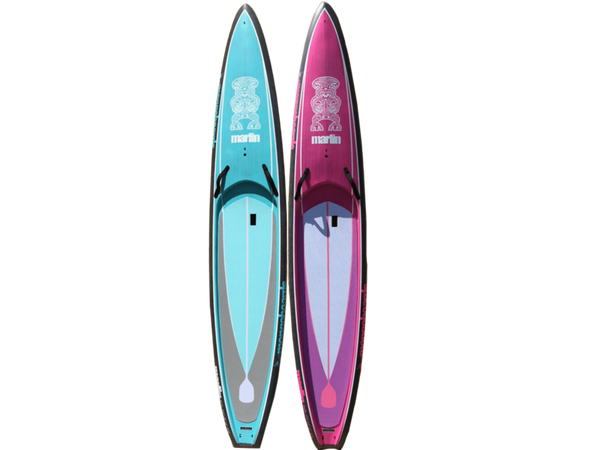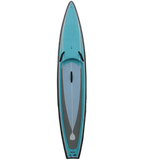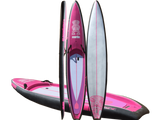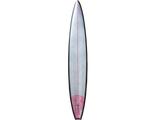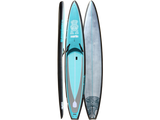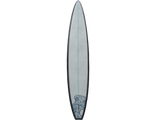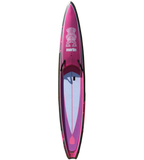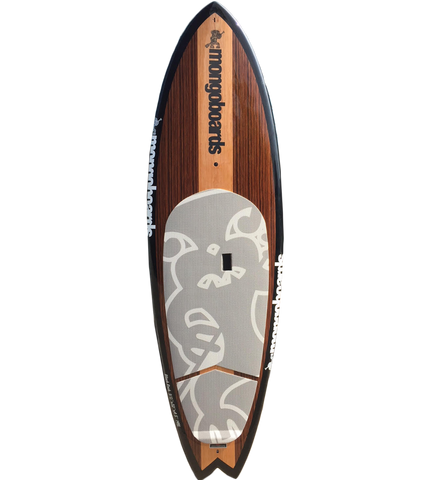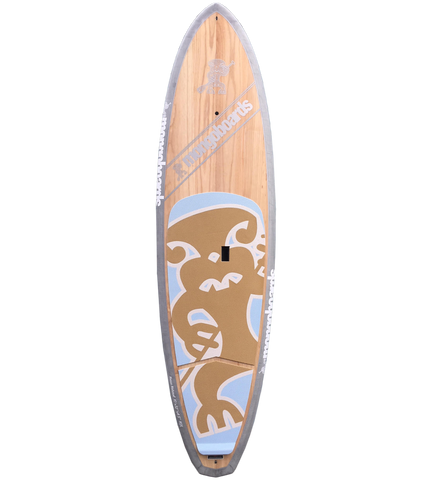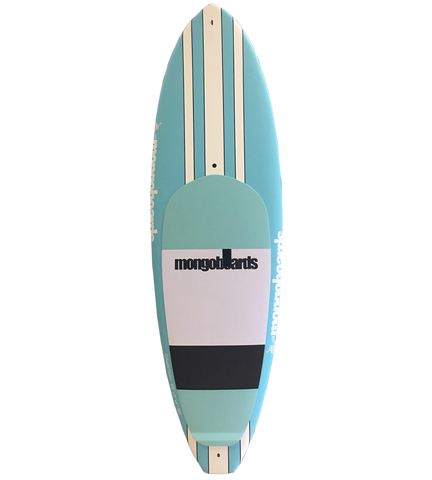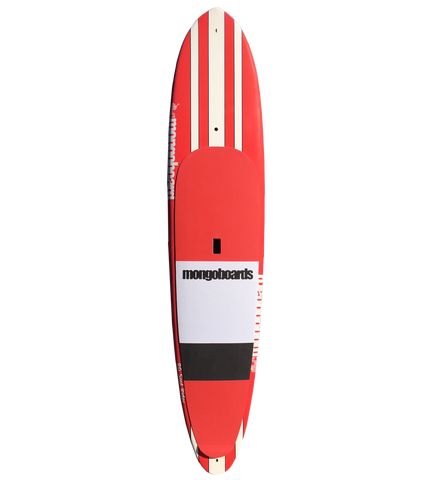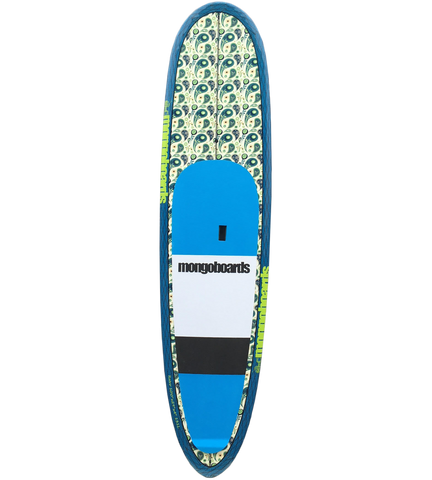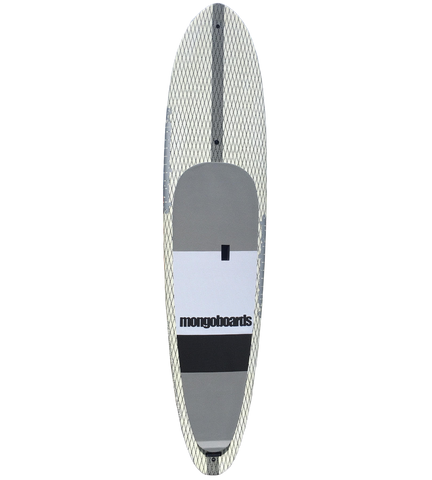12'6" x 27" Marlin
12'6" Marlin Race SUP
The little brother of our 14' Marlin, versatile compact and an extremely stable board.
The latest and greatest in our Race/Touring range. A deeper recess deck than the earlier model giving this board great stability making it not only for the pro but also for...
12'6" Marlin Race SUP
The little brother of our 14' Marlin, versatile compact and an extremely stable board.
The latest and greatest in our Race/Touring range. A deeper recess deck than the earlier model giving this board great stability making it not only for the pro but also for those riders that think this board would be too difficult to ride. We have added scratch resistant carbon/ innegra rails and strap carry handles for race and easy every day use. We have added a concave to the bottom giving an overall speed and performance increase.
Full carbon fibre, 3 x Go-Pro mounts, front, middle and back. BOP and distance this is a great cross over board from a flat water race sup to a serious downwinder

Choosing Correct Size Stand Up Paddle Board.
The answer to this question will be based on your weight and paddle boarding experience. Think of your ideal board size in terms of volume. The wider, longer and thicker the board, the more volume it will have. In fact, the more volume the board has, the more stable it will be on the water.
The overall buoyancy of a stand up paddle board or SUP is affected by its length, thickness and width. It is listed as board volume and is measured in litres.

- LENGTH
A longer board will generally go faster and straighter. With a longer board, you’ll get more paddle strokes per side before you have to cross over to the other side to keep the board going straight.
- THICKNESS
This can add volume to a board without adding extra length or width. Too much result’s in the board sitting above the water and too little will cause the board to sit too deep in the water. Keep in mind, the ocean has more buoyancy than freshwater lakes and rivers.
- WIDTH
A wider board will feel more stable but will glide slower. A narrower board will glide faster but can become unstable in windy/choppy water. Width can add necessary volume but at the cost of performance. 30” wide is a good starting point.

It’s important to select a board with enough buoyancy to float your body weight sufficiently because the lower the board sits in the water the less stable it becomes. A lighter person will float higher and therefore be more stable than a heavier person
Recommended SUP Volume Chart
Beginner: 200% of your body weight in (kg) e.g. 70kg x 2 = 140L (litres)
Intermediate: 170% of your body weight in (kg) e.g. 70kg x 1.7 = 102L
Advanced: 130% of your body weight in (kg) e.g. 70kg x 1.3 = 91L
This table should only be used as a guide. For further information and a more approximate volume please call Mick or Alice on 0450080566. Experience, and conditions will affect these numbers.

